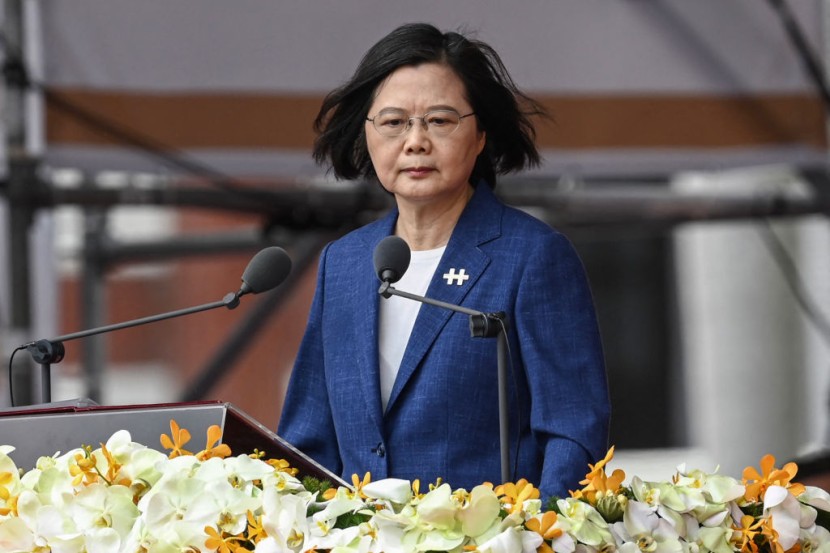
President Tsai Ing-wen said her administration would not "bow to pressure" from Beijing in response to China's calls for "reunification" on Sunday.
Tsai stated the country is willing to do its share to contribute to the region's peaceful development but would not jeopardize its independence during a rally celebrating Taiwan's National Day.
Taiwan says it will resist China's reunification pled
A display of Taiwan's defense assets, including armored vehicles, fighter planes, and helicopters, was also part of the celebration on Sunday. In a speech marking the 110th anniversary of the revolution that destroyed China's last imperial dynasty, Chinese President Xi Jinping stated on Saturday that "reunification" with Taiwan "must be fulfilled in a peaceful manner."
According to Ma Xiaoguag, a spokeswoman for China's Taiwan Affairs Office, Tsai's address incited conflict and misrepresented facts. Per UPI, Taiwan's defense ministry said China has lately intensified encroachments into Taiwan's airspace, with scores of Chinese military jets flying into the Taiwan air defense identification zone last weekend.
There was a widespread alarm after China sent a record-breaking number of fighter planes into international airspace near Taiwan. Taiwan has increased its unofficial relations with Japan, Australia, and the United States in the face of perceived threats, despite predictions that China may be capable of a "full-scale" invasion by 2025.
Following Tsai's National Day address, various weapons, including missile launchers, armored vehicles, fighter planes, and helicopters, were showcased in Taipei. "There should be absolutely no illusions that the Taiwanese people would bow to pressure," Tsai said, adding that her country will not "act rashly," Sky News reported.
On the other hand, Tsai's statement was seen to have "incited confrontation" by Beijing, which demanded that the two nations be "reunified." "This speech advocated Taiwan independence, incited confrontation, cut apart history, and distorted facts," China stated after nine hours of silence.
Read Also : Russia Sends More Gas to Europe To Ease Escalating Energy Crisis; Is Vladimir Putin Using Supply as Weapon?
President Tsai Ing-wen upgrades military forces to strengthen defense
Chinese President Xi Jinping stated on Saturday that reunification with Taiwan "must be accomplished," and that it could be done peacefully. However, polls suggest that the majority of Taiwanese people support the current quo.
Tsai has made upgrading the island's military forces a priority to strengthen its defenses and deterrence, including developing its own submarines and long-range missiles capable of striking deep into China. Beijing refuses to recognize Taiwan's government is set to vote on proposals to boost defense expenditure by $8.59 billion over the next five years, on top of the $16.76 billion it now spends.
The island has also increased its unofficial connections with nations such as Japan, Australia, and the United States, the latter of which just joined the new Aukus security alliance with the United Kingdom, which Beijing has branded as "extremely irresponsible."
According to Kuo Yu-jen, a defense studies expert at Taiwan's Institute for National Policy Research, the Taiwanese government has kept its missile capabilities hidden from the public eye in the past to avoid looking provocative.
Some analysts speculated that China's growing military presence in Taiwanese airspace, which has alarmed international leaders, may be interpreted as a warning to Tsai ahead of Sunday's parade. The 1st of October was also China's National Day, followed by the Golden Week holiday, as per The Independent.
Related Article: Joe Biden, China's Xi Jinping Agree To Hold Virtual Summit; US Argues Establishing "Guardrails" Amid Growing Contest Between Two Powers
© 2026 HNGN, All rights reserved. Do not reproduce without permission.








